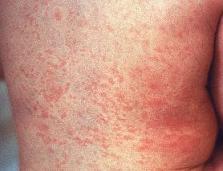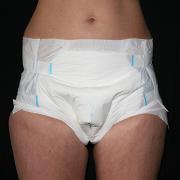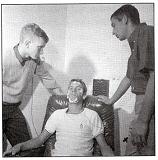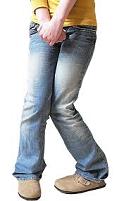Nocturnal Enuresis in Adults
posted by: Rio Dianne
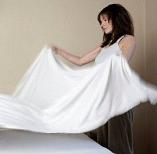 Nocturnal enuresis is defined as involuntary passing of urine during sleep. In layman’s term, this is called bedwetting. This problem is something that happens in children at some point in heir lives. But voiding of urine while asleep can also occur in teenagers and in adults. The condition can actually be classified in two: primary and secondary. Primary occurs during childhood and adolescent years while secondary nocturnal enuresis happens at an older age. Oftentimes, this is mistakenly confused with nocturia or nocturnal polyuria.
Nocturnal enuresis is defined as involuntary passing of urine during sleep. In layman’s term, this is called bedwetting. This problem is something that happens in children at some point in heir lives. But voiding of urine while asleep can also occur in teenagers and in adults. The condition can actually be classified in two: primary and secondary. Primary occurs during childhood and adolescent years while secondary nocturnal enuresis happens at an older age. Oftentimes, this is mistakenly confused with nocturia or nocturnal polyuria.
Generally, bedwetting is acceptable in children although they should be presented with interventions as well to stop the behavior. However, more actions should be taken if this constantly happens in adults. Learn more as we tell you about nocturnal dieresis in adults, its causes, signs and symptoms, and treatment.
Causes of Nocturnal Enuresis in Adults
- Genetic association
- Loss of bladder control or urinary incontinence
- Bladder infections or cancer
- Conditions such as Dementia and Alzheimer’s disease
- Uncontrolled diabetes
- Weakening of muscles of the bladder
- Prostatitis in men
- Pelvic infections in women
- Excessive stress and anxiety
- Sleep apnea
- Medication side effects
Signs and Symptoms
- Uncontrollable urination during the night
- Excessive urgency to urinate
- Burning sensation may be felt
- Straining while passing urine may be present
How to Treat Bedwetting in Adults
Apparently, there are a lot of ways you can do on how to cure the condition. Behavioral therapy as well as pharmacologic treatment can be done to modify the condition.
Behavior Modification
- Limit intake of beverages such as alcohol and caffeine can be beneficial to reduce occurrence of the situation.
- Bladder control training can be practiced by allowing the sufferer to drink plenty of fluids and letting him hold the urgency to void for alteast 2-3 hours. Doing this on a regular basis may help in controlling bedwetting.
- Waking up the patient frequently to give time to urinate or using bedwetting alarm system. The latter is actually a device clipped on the underwear which eventually alarms once wetness is detected.
Treatment with Medications
Desmopressin acetate is among the best drug of choice to address the condition. The drug mimics the anti-diuretic hormone to produce less urine. This drug is available in nasal sprays and pills. Another medication beneficial to prevent nocturnal enuresis is Imipramine.
Make sure to talk with your doctor to learn more on how to treat nocturnal enuresis in adults. Hope this has been a helpful article.
You might also like
|
|
|
|
|

